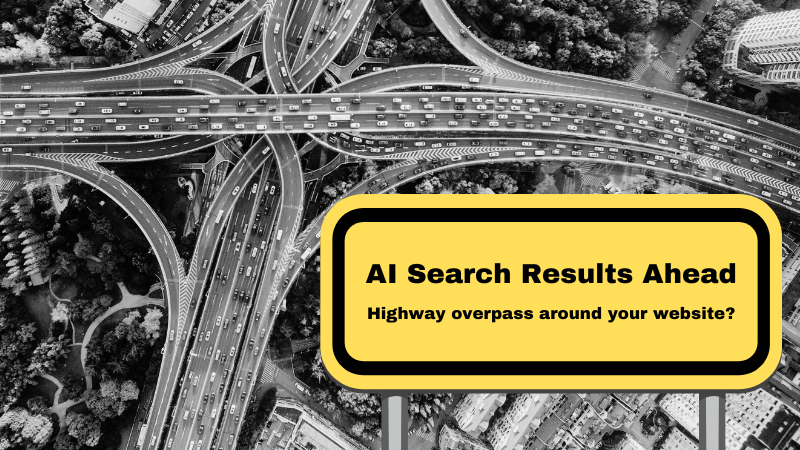AI overviews now appear in 7.6% of Google searches. These helpful little summaries aim to make finding relevant information faster and easier than ever before. But for marketers, Google AI search results signify a seismic shift in how we approach SEO and content.
As AI-generated summaries provide users with direct answers right there on the results page, the traditional approach to driving traffic and visibility is changing.
This article explores how Google AI search results are impacting content, clicks and SEO, including:
- What AI overviews are and why they exist
- Ways AI overviews change how to approach SEO content
- Expert predictions for the future of AI overviews
- Tips for adapting to the AI search results takeover
What are AI search result overviews?
AI-generated search result overviews are a new feature in search engines like Google that provide users with concise, summarised information based on a wide range of online sources.
Google rolled out AI Overviews in May this year. They appear when Google’s systems detect that an AI-generated summary could be particularly useful, such as when a user is looking for a broad understanding of a topic from multiple perspectives. Here’s an example:
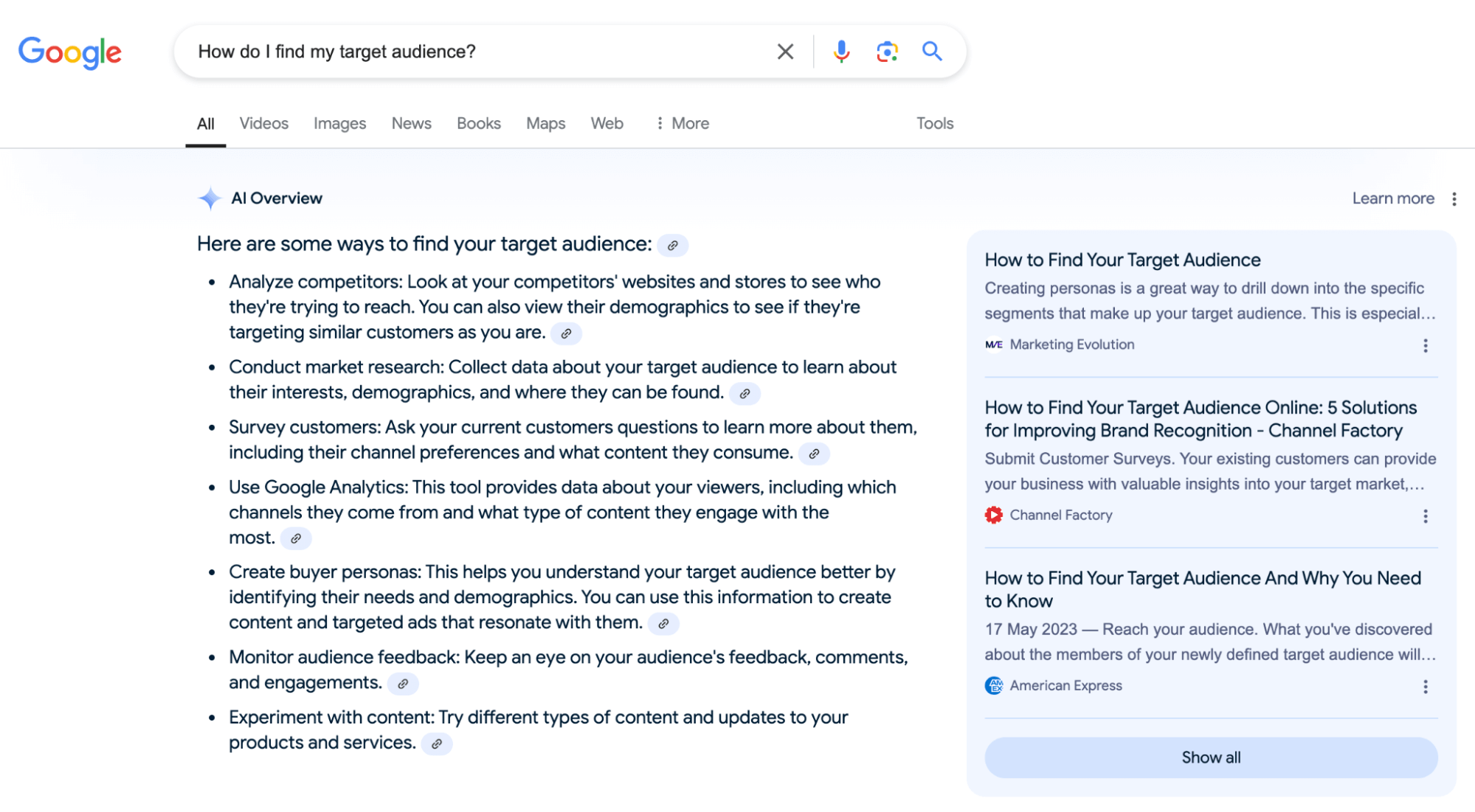
Unlike traditional search results, which match keywords to present a list of links based on the user’s search intent, the new Google AI search results aim for a more focused, streamlined response:
- The AI Overview section on the left gives the overarching answer to the query and its themes.
- Next to these are links to resources that further explore the topic, offering users an array of content to dig deeper.
How to get AI search results on Google
You don’t need to do anything to turn on generative AI in Google Search. To access the new Google AI search results, simply perform a search on Google. If an AI Overview is available, it will appear in your search results.
Why is Google using AI search results?
The new Google AI search results offer users an easy, fast way to get the answers they’re looking for.
Users can quickly access a snapshot of key details, eliminating the need to sift through multiple links. By leveraging generative AI, Google can process vast amounts of data in real time and predict user needs based on prior searches, providing relevant answers faster than traditional methods.
Plus, by providing links to source materials and further reading, Google AI search results provide easy access to a wealth of information from across the web. Users can enjoy a balance of simple overviews alongside deeper reading if they need it, for example, for writing essays or compiling research reports.
As with any new technology feature, Google AI search results aren’t without challenges. AI search overviews have been known to occasionally provide inaccurate information, such as incorrect recommendations or misinterpreted queries.
Concerns have also been raised around a lack of transparency in how new Google AI search results are generated. Not to mention, there is limited user control for providing feedback, inconsistent performance across queries and potential biases in the information presented.
What do AI search overviews mean for content and clicks?
With tailored search summaries available at the click of a button, how users interact with web content is changing.
Users don’t need to visit your website to get the information they’re looking for
The whole point of having a website is to get eyeballs on it. And with AI overviews, this has become even more difficult.
With key information now displayed in search results pages themselves, users don’t need to click through to individual websites, leading to a notable decline in organic traffic. Early studies suggest a drop in website traffic of between 18% and 64%, particularly for informational queries, such as ‘Why do bees make honey?’ or ‘What is the best way to train a puppy?’
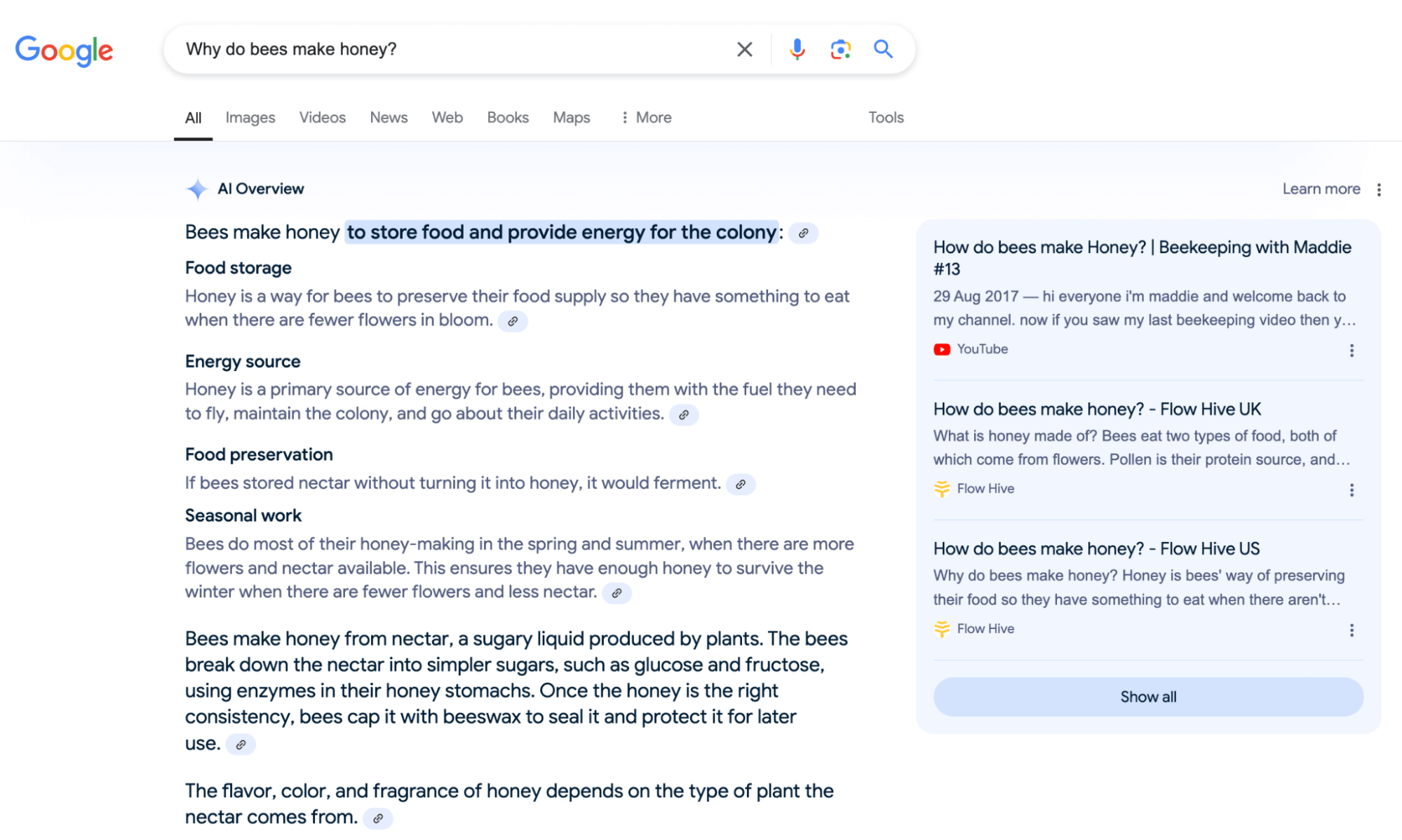
SEO keyword targeting will be influenced by AI Overviews
According to seoClarity, AI Overviews are triggered for nearly 1 million keywords. And some search queries are more likely than others to trigger Google’s AI search results.
Local keywords, which previously appeared in Google’s Search Generative Experience (SGE), are less likely to trigger AI Overviews. So, if you’re a local business targeting terms like ‘Best coffee shops in London’ or ‘Affordable wedding venues in Manchester’, it’s likely that you’re safe from AI Overviews — for now, at least.

Similarly, buying guide keywords, such as ‘child’s bike buying guide’ or ‘smartphone camera comparison buying guide,’ also see fewer AI Overview results.
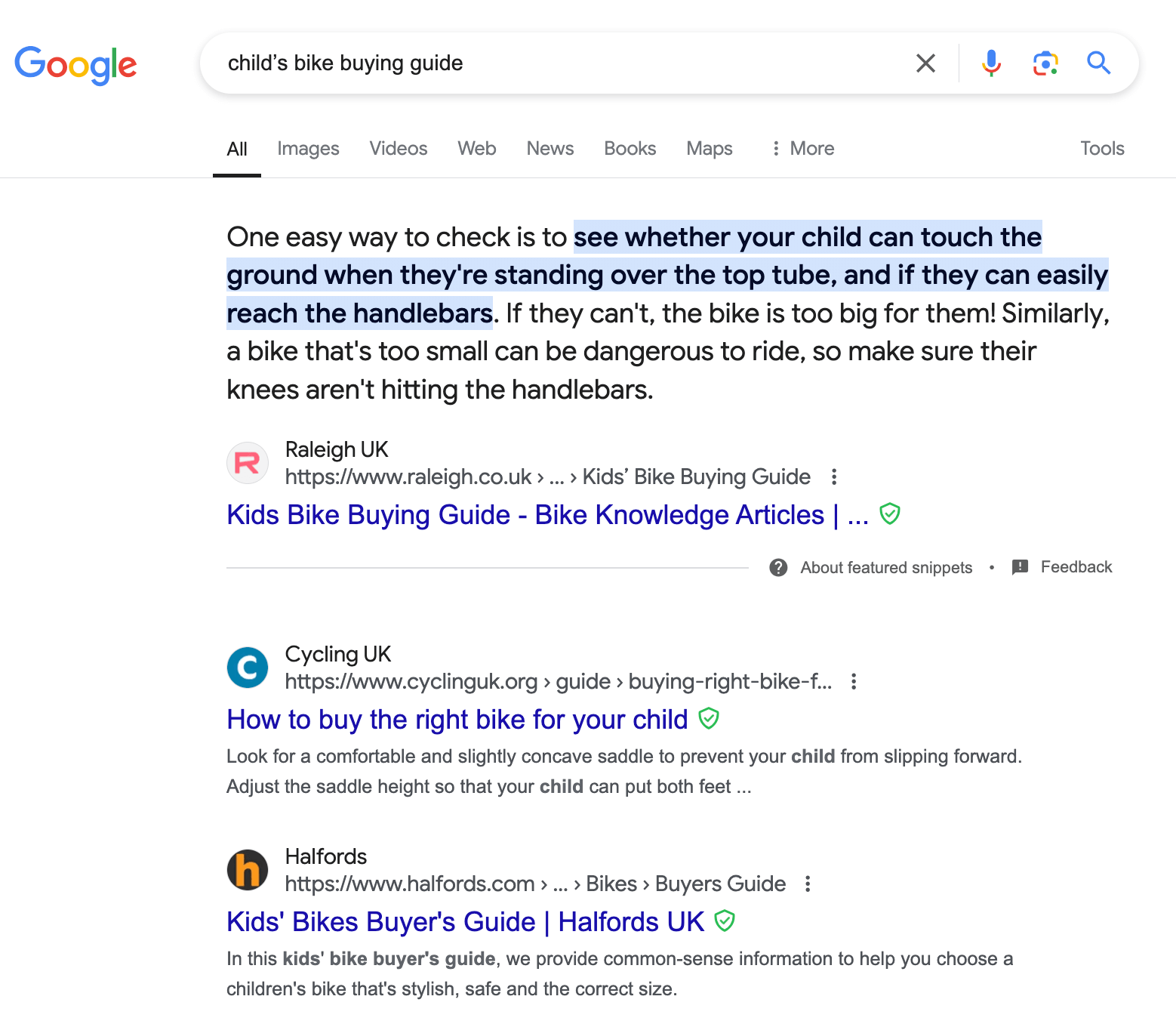
With keyword targeting impacting website click-throughs more than ever, marketers need to re-evaluate their keyword strategies.
A focus on higher quality content — for AI
To be featured in Google AI search results, websites must prioritise ‘AI Optimisation,’ which focuses on producing high-quality and relevant content.
On the one hand, this should be no surprise. Google has long emphasised the importance of content quality impacting the likelihood of appearing in search results. SEOs and content marketers already consider this a key ranking factor, and something all content should strive for, rather than ‘black hat’ techniques like keyword stuffing.
AI Overviews continue this trend of emphasising content quality. AI algorithms favour content that is well-structured, easy to navigate and aligned with user intent. Creating detailed, useful and authoritative content is essential for visibility in AI-driven search results.
Keeping up with what’s considered ‘quality content’ is only going to become more fast-paced. Websites will need to make continuous adjustments to design and content to keep up with rapid developments in AI technology — or else risk an SEO nosedive.
Don’t worry, though — you can still pay for prime position
In early Beta tests, Google Ads remained largely unaffected by the introduction of AI Overviews. Ads continue to be displayed both above and below the Google AI search results answer box, maintaining their visibility.
While these initial findings suggest a minimal impact on paid advertising, more comprehensive testing is needed to understand the full effect as the AI Overview feature is further rolled out. Marketers should continue monitoring ad performance for any potential changes in visibility and click-through rates.
For now, at least, the status quo remains: money talks, and in classic big-tech fashion, those who pay the most appear the most.
Experts make 4 future predictions for generative AI search results
As AI continues to transform search results, experts predict major shifts in how we create and optimise content. Below are 4 key trends driving changes to AI search results over the next 3–5 years, which marketers will need to adapt to — or fall behind.
1. Visual and multimodal AI search results will be introduced
Generative AI search results are expected to become increasingly visual and multimodal. Search engines will soon integrate images, videos, voice and text into a single result, offering a comprehensive multimedia response to user queries.
It’s going to shift user behaviour significantly—people will get more information directly from the search page, reducing the need for clicks. SEO will need to evolve, focusing not just on keywords, but also on optimising visual elements and structuring data to be more AI-friendly.
2. Organic SEO visibility will be harder than ever
Experts predict that while paid ads may retain their prime spots, SEOs will need to shift tactics to adapt and remain visible — or else disappear into the digital ether.
As is often the case with Google, I believe that paid ads will have more protections over their visibility while SEOs will need to adapt to diminished visibility for organic results. This could mean anything from optimising content to appear in AI search results to moving resources into other avenues such as Google Business Profiles, competing search engines or social platforms like TikTok and Reddit that often function like search engines for users.
3. Content will have to work harder to get clicks
AI-generated answers will likely satisfy many queries directly on the search results page, reducing the need for users to click through to websites.
AI search results will become more casual and intent-driven over the next 3–5 years. With AI like Google's Bard and ChatGPT shaping search, users will get more direct answers without clicking on traditional search results. This means SEO strategies will shift toward optimising for rich snippets and voice searches and creating highly focused, authoritative content that AI will prioritise.
4. Prioritising intent over keywords will become the norm
AI is evolving toward more conversational and intent-driven search experiences, where the user’s purpose is prioritised over the specific keywords they use.
I expect AI search results to evolve into something far more conversational and context-aware. AI is getting better at predicting what users really mean, not just what they type. This means we’re moving toward search engines that prioritise intent over keywords, and that changes the SEO game.
Content won’t just need to rank based on keywords anymore; it’ll need to provide genuine value in response to what users are asking. This means less focus on traditional SEO tactics and more on producing content that genuinely answers questions and solves problems.
Adapting your strategy for AI SERPs
As we’ve seen, AI search results, like Google’s AI Overviews, are reshaping how users interact with content. By providing answers directly in search without the need to click through to websites, AI Overviews raise important questions about how marketers can adapt. How do you optimise for AI-driven SERPs when click-through rates (CTR) decline? And how do you ensure your content remains high-quality and valuable?
Below, we explore key strategies for adapting your approach and staying relevant.
First and foremost, monitor your analytics
Monitoring your analytics is crucial to understanding how AI-driven changes affect traffic, engagement and conversions. As AI search results mean fewer clicks, keeping track of your website’s performance becomes more challenging — but even more essential.
Lauren Walter explains, ‘The best way to monitor AI’s impact will depend on your scale and resources. Smaller organisations with fewer resources may be content with investigating key changes manually. If a page is receiving less traffic, check to see if it has been altered in any way or if its keyword rankings have changed. If not, it may be easiest to manually check the SERPs for those keywords to see how AI may have impacted organic results.
‘For bigger organisations operating at a larger scale and with greater resources, there are a number of emerging tools for monitoring AI’s impact that will be a better fit.’
Jon Morgan adds, ‘To monitor AI’s impact on traffic and conversions, we’re diving into analytics with a more segmented approach. It’s no longer just about tracking traffic volume; we’re looking at the quality of that traffic. How engaged are the users who do click through? What are the conversion rates like?
‘We’re using tools that help us understand the user journey post-click, focusing on behaviour and conversion paths rather than just page views. We’ve discovered that AI is already affecting how users engage with content, so having a granular look at metrics like time on page and scroll depth helps us adapt our strategies as AI search evolves.’
Analytics tools like Wide Angle Analytics help marketers gain insight into AI’s impact on CTR, traffic, conversions and other metrics.
Jarek Rozanski, Founder of Wide Angle Analytics, highlights the importance of privacy in tracking AI-driven shifts: ‘With AI evolving in tandem with ever more stringent online privacy regulations, businesses need analytics tools that don’t compromise data compliance. Wide Angle Analytics enables marketers to monitor detailed user behaviour while ensuring privacy regulations are met, allowing them to adapt and optimise strategies without sacrificing trust.’
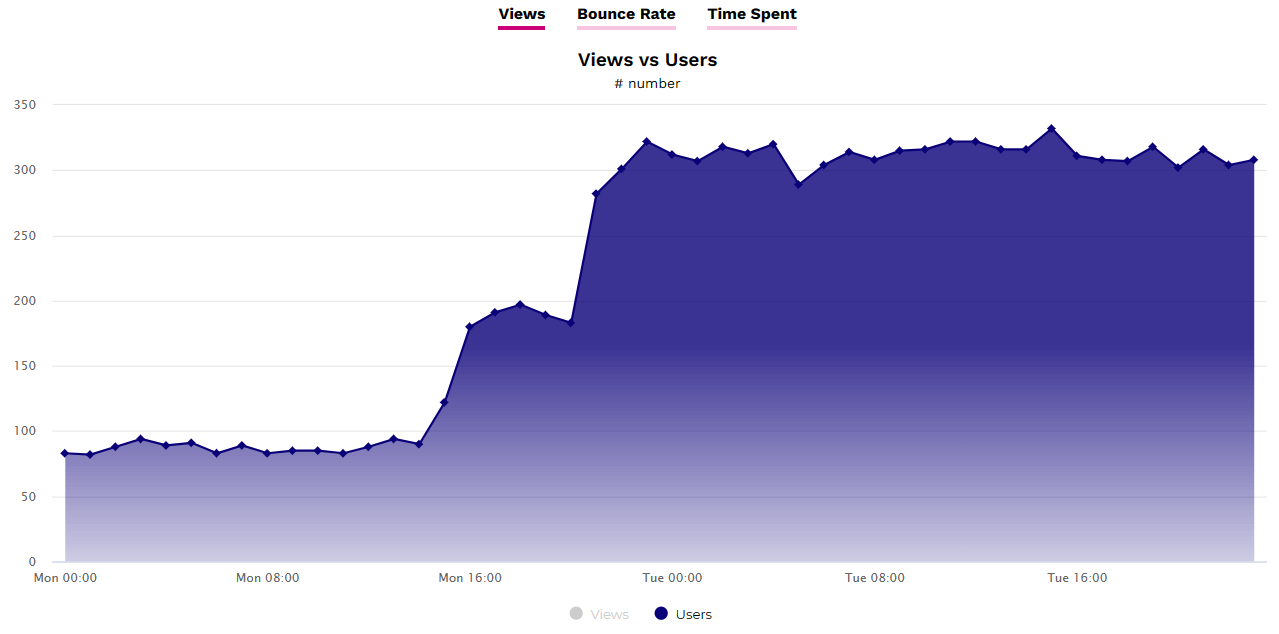
Structure your content for AI, including correct tagging and schema deployment
Another essential adaptation is ensuring your content is structured for AI. As Lauren Walter notes, ‘Marketers can optimise how their content is structured on the page, including schema markup, to make it more readable for AI.’
Schema markup and clear content organisation help AI systems pull relevant information directly into search results. Structuring your content with headings, bullet points and schema improves your chances of appearing in AI-generated snippets.
Create high-quality content
Even if AI search reduces organic clicks, providing valuable, high-quality content should be a top priority.
Jon Morgan explains how Venture Smarter approaches this in practice: ‘To balance the likely reduction in clicks, we’re also expanding the depth of engagement for those who do land on our sites. That means investing in more interactive content, like videos or tools, which encourages users to stay longer and explore more deeply once they arrive.’
Your next steps in the AI search era
With Google AI search results providing more direct answers to user queries, traditional SEO strategies need a makeover. Getting visibility and clicks is harder than ever before.
As our experts have highlighted, those who evolve by focusing on AI snippet optimisation, multimodal content and intent-driven searches are likely to come out on top in the long run. And analytics is vital in understanding how AI impacts user behaviour, engagement and conversions.
Wide Angle Analytics ensures businesses can track AI-driven changes. See 100% of website traffic alongside other key metrics like time on page, bounce rate, customer journeys, custom actions and events. Visit our website to give it a go with a free and instant interactive demo.
No Cookie Banners. Resilient against AdBlockers.
Try Wide Angle Analytics!
FAQs
How to turn off Google AI search results
Currently, you can’t completely turn off Google AI search results. But, you can reduce their prominence.
Using the ‘Web’ filter can help revert to traditional search results. Simply click the ‘Web’ tab under the search bar, or find it in the ‘More’ menu if it’s not visible. This removes the AI Overview panel for that session.
Additionally, you can visit Google Labs to manage experimental features, including toggling AI-related tools, though this doesn’t completely eliminate AI Overviews from standard searches.
Does Google use AI for search?
Google uses AI in its search results through AI Overviews, a feature designed to help users quickly glean information from various sources.
Google AI search results are becoming more widely available across different regions and languages. These summaries appear for certain informational search queries — when Google’s systems determine that generative AI can provide a clearer, more concise overview of complex topics — making it easier for users to get a quick grasp on the information they’re searching for.
Lauren Meredith is a seasoned content marketing strategist and writer helping online businesses connect with their audience and maximise organic success. Her SEO content secures #1 positions on Google, features in publications such as The Independent, Yahoo and academic domains, and has won an award at the Digital Growth Awards.
